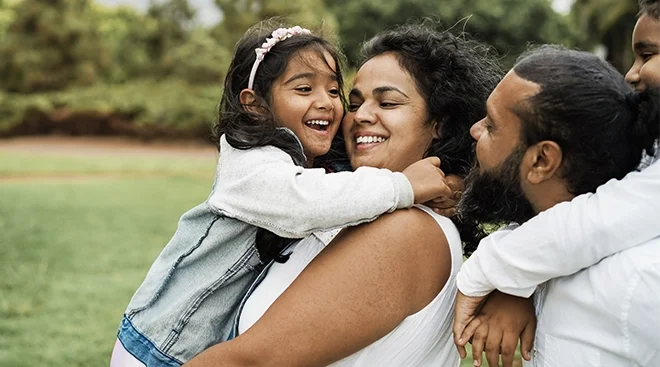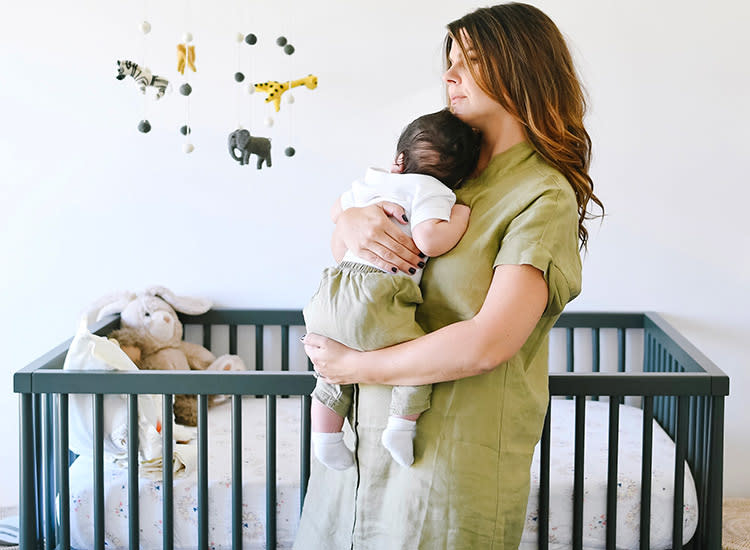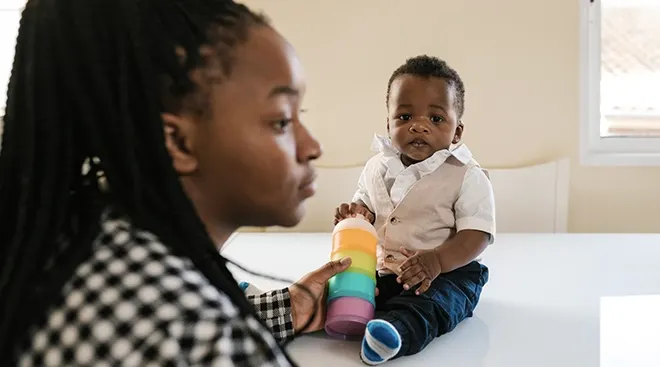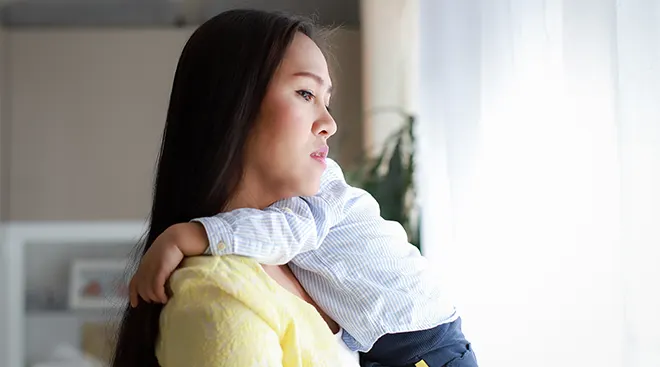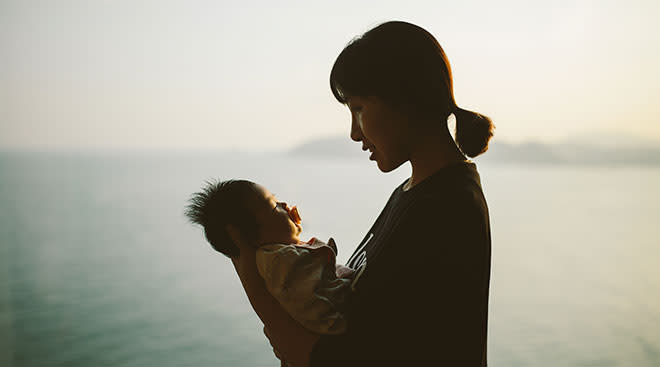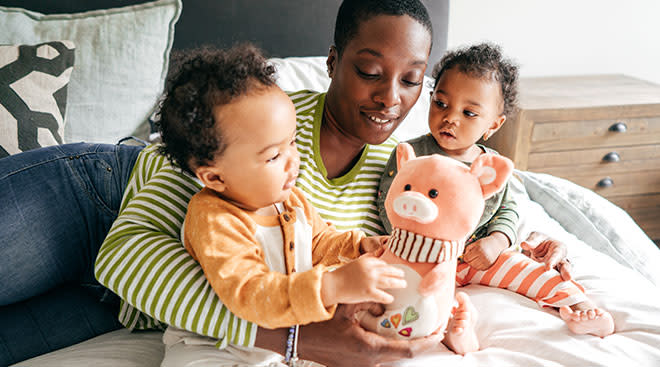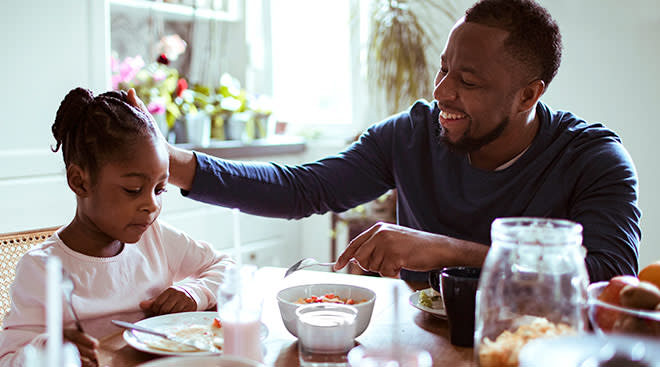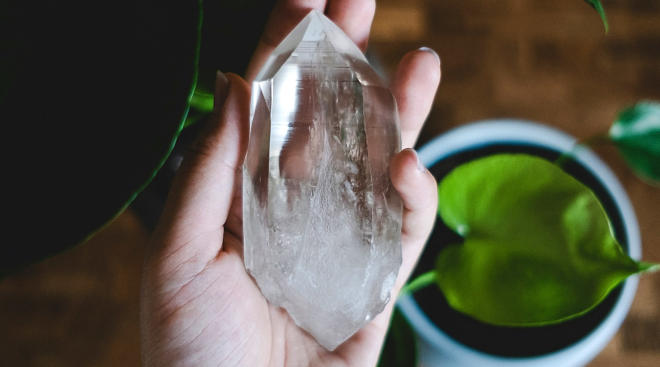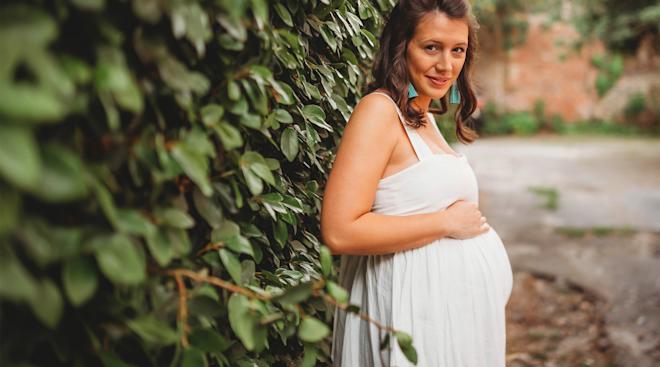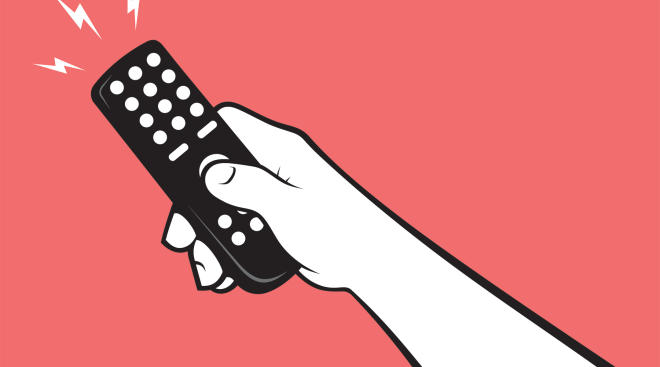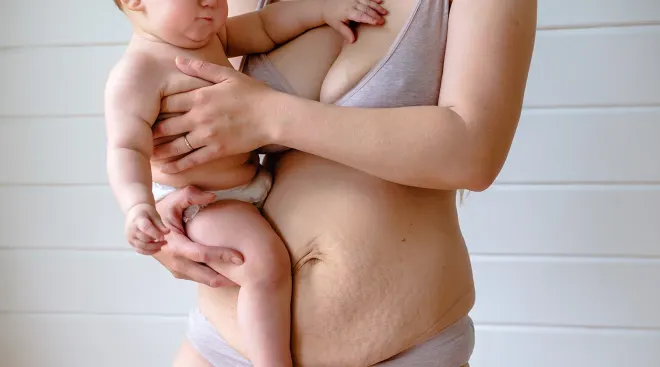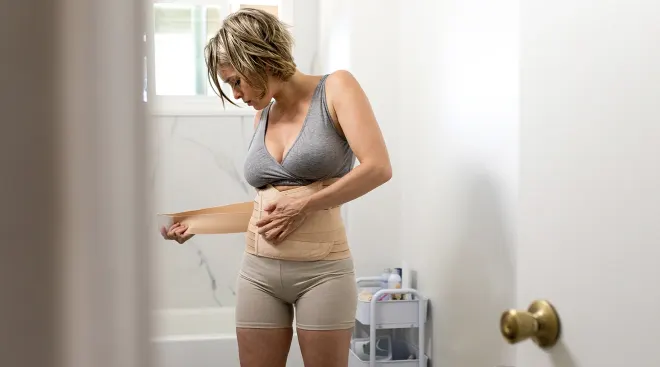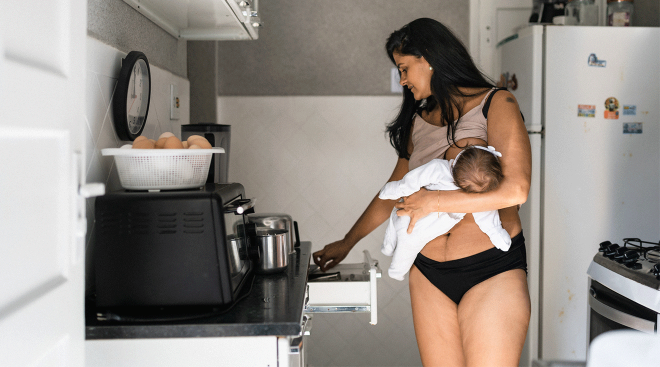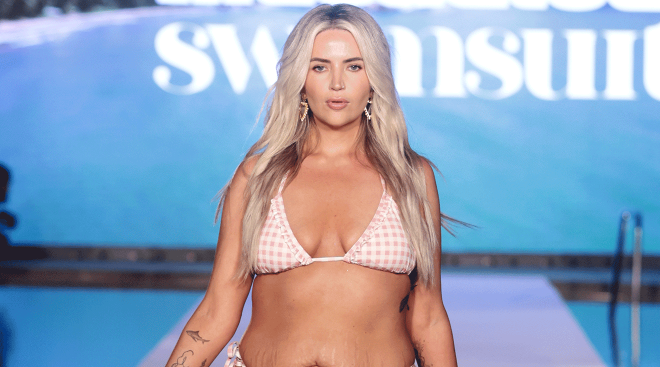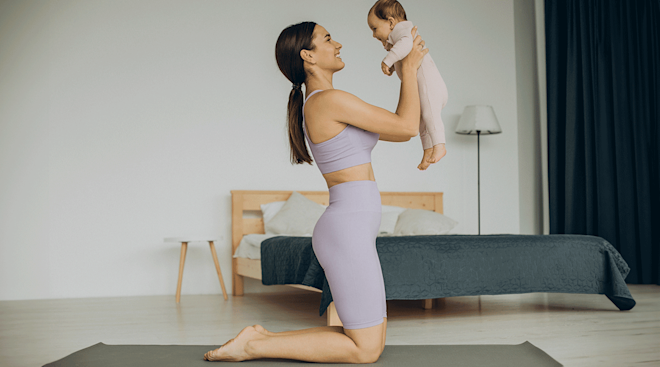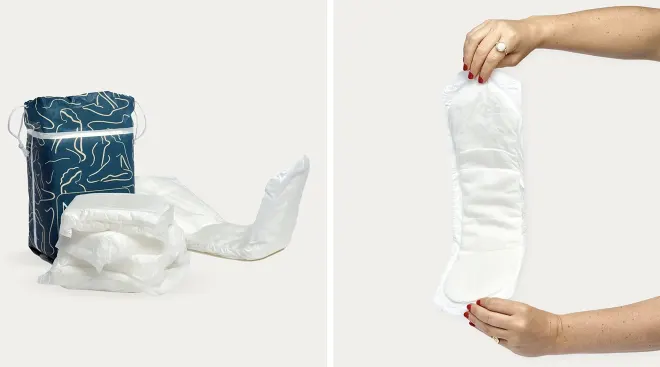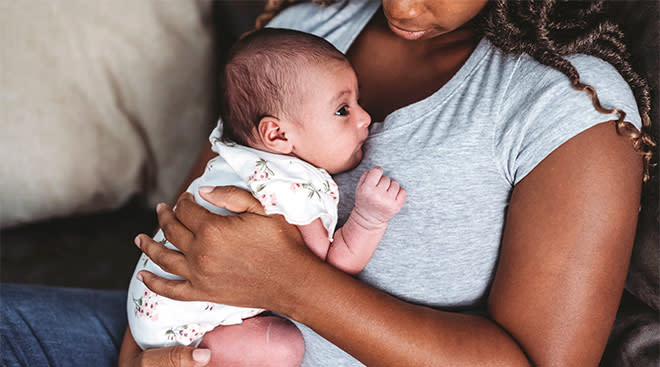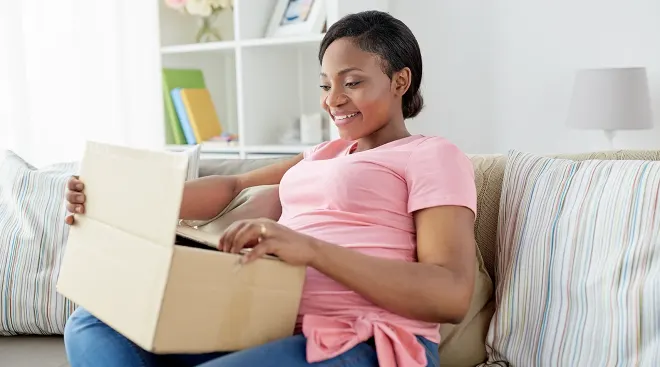Why Millennial Moms Deserve More Credit Than They Get
Millennials get a bad rap. Sure, we may have hit the generational jackpot—iPhones, the internet, the Phillips Turbo Star Airfyer—and will never suffer the loss of an overstuffed CD case, but our disc-free existence doesn’t come without a price tag. Not only are we destined to serve a lifetime as a cultural punchline, but we also must endure the pain of having to routinely explain to our parents what a hashtag is, all while staring at the top halves of their foreheads in the FaceTime window. (Tilt it towards you, Dad. No…towards you.)
Conventional wisdom suggests that millennials are entitled and coddled, because our parents didn’t force us to do our own laundry when we were growing up and because I can get my groceries delivered through an app; and since my preschool soccer coach once handed me a plastic award for sitting on the bench all season, I feel like I’ve forfeited my right to speak up now about the difficulties I face as a millennial adult, particularly as a mom. But for many millennial moms, the struggle is real.
More than 17 million millennial women (born 1981-1996) have become mothers, and 1.2 million in 2016 alone, according to Pew Research Center. For a lot of these women, the transition into motherhood is hard-fought, messy and isolating. Since many of the obstacles a millennial mom faces are newer phenomena, little information is available on how she might attempt to navigate them (or even learn they exist!).
We already know women today are waiting longer before having children (the median age in 2017 was 26.8, a 25 percent increase since 1970), but we haven’t begun to explore what that means for a woman’s mental and emotional health.
Before we do, we should first acknowledge why women are having children later in life, because that’s a pretty important piece in all of this. Millennial women are going to college in record numbers (the enrollment rate of women has grown more than 225 percent since 1970, with more than 10 million women attending university in 2019—eclipsing male enrollment by over two million), and are more likely to spend early adulthood pursuing a profession. Today, seven out of 10 women are holding jobs before having children, according to the Department of Labor, up from 47 percent of women in 1975. (It should be noted that six out of 10 women with children under the age of 3 continue to their career postpartum, with 24 percent returning to work within 10 days of giving birth, according to the American College of Obstetrics and Gynecology (ACOG). Ten days!)
Millennial women are experiencing adulthood and investing in their careers for longer before having a child than previous generations of women; they have more time to develop and define a personal sense of identity beyond just being a daughter or partner and before becoming a mother. When it comes to gender in America, this, my friends, is progress—but it can also be setting us back. In the US, postpartum healthcare isn’t yet equipped to address the needs of the millennial mom. Does that surprise you? It shouldn’t. It took until 2018 for ACOG to suggest doctors see postpartum women beyond a single six-week, 20-minute checkup where the new mother is basically just cleared for sex and exercise.
The transition into motherhood for many millennial women often comes both swiftly and ferociously; the deeper etched their identities, the harder it is to abandon them when new motherhood forces your hand. We can argue many things here, but the sacrifice of motherhood is not one of them. And despite what you may have read about women having it all, we can’t. Not now. Not ever. Not as long we are the only gender capable of producing human life. No matter how hard you cling to your identity, as a new mother you have to shed pieces of your pre-baby life in order to make space, and that can be really, really hard for women with a fiercely defined sense of self.
Exhaustion, depletion and the overall feelings of failure that often accompany new motherhood—particularly for a crop of women who were bred to excel—can be debilitating, especially at 3 a.m. when you have a restless 6-week-old and it feels like you’re the only person on the planet still awake. We don’t dare ask for help or admit how hard this whole motherhood thing is, because we’re proud, self-sufficient women raised to believe we can handle anything. We have our very own shade of pink, dammit. Many of us continue to press ahead and put on the pretense that we’re crushing it, but in reality, we’re unraveling under this life event that we were raised to believe was intuitive simply because it’s natural.
Postpartum counseling and therapy should be offered to all new mothers in regular practice as part of a standard policy of care. Speaking from experience, a woman shouldn’t need to have an anxiety attack while sitting in the waiting room of her OB-GYN’s office to be given that choice. Many women suffer in silence, and options should be made available to every single woman who has a human being pulled from her body.
But the mom-life identity crisis is only a piece of the puzzle. Millennial women are also venturing into this new chapter, in large part, without the support of their native communities. It’s estimated that 63 percent of all adults leave their hometowns, according to Pew Research Center, causing a geographic isolation for many new mothers who historically would and should have the help of their native tribe. Take for instance, my own mother who was raised within two blocks of three aunts and her grandmother, and who raised her own children roughly a mile away from her identical twin sister and within 10 minutes of her mother. When my daughter was born in 2014, I was 90 miles from my mom, 380 miles from my mother-in-law and 460 miles from my sister. It’s a lot harder for someone to drop off a casserole or do a 15-minute check-in when it involves a plane ride (or perhaps even more daunting, rush hour in Los Angeles). Most days, I sat in my self-appointed failure alone. As a community, we should be stepping up to the plate to offer new moms support much more than we are. Women were never intended to raise children on their own, so I’m not sure how or why we ever started believing that we should.
So what do millennial moms do when they’re looking for a distraction from their hectic days? We turn to social media, silly! We open Instagram and invariably start comparing our parenting journey against a crop of inexplicably groomed unicorn moms who participate in postpartum drum circles, wear flower crowns and try to swindle us into buying a collection of essential oils. Certainly, if anyone can appreciate how easy it is to manipulate a photo for social media, it’s a millennial, but for new moms, logic has often long left the building. We look to these women as the measure of ideal motherhood, and punish ourselves when our reality doesn’t look as idyllic.
The further down this hole a new mom ventures, the more twisted it becomes; and that’s when her struggle can go from deflating to dangerous. Millennial moms are suffering perinatal mood and anxiety disorders (PMADs) at the highest recorded rates, and the proof is in the pudding. In a 2009 study from the American Journal of Obstetrics & Gynecology, 15 percent of all mothers suffered from postpartum depression, while a 2018 statement from the National Perinatal Association suggests that up to 25 percent of new mothers suffer PMADs, including postpartum depression.
The conversation surrounding the cause and treatment of these disorders are complex and often controversial, but experts do agree on one thing: New moms can all use a little more kindness and a few more friends. According to a report in the Journal of Perinatal Education, multiple studies suggest an association between a lack of social support and postpartum depression. It shouldn’t take a medical degree to tell us just how far a helping hand can reach—especially for a new mom.
However, since millennials are considered the “what can you do for me” generation, the challenges we meet are often dismissed. They say millennials whine when things are hard, and that we don’t know real struggle. I disagree. Sure, we have Amazon Prime and that’s a pretty sweet deal, but I was also back to work full-time four weeks after giving birth. And yes, Netflix can make late night feeding more bearable, but I also have the frightening ability to use WebMD at 2 a.m. to diagnosis myself and my children with just about every life-threatening disease imaginable.
So just maybe we could start cutting millennial moms some slack.
It’s a tough climb, and understanding a mom’s plight isn’t going to happen overnight. There’s much to be researched, discovered and thought about in order to better help the next generation of women who become mothers. Until then, millennial women will continue to keep course and trudge through early motherhood the best they can. Hopefully conversations like this can help pull back the veil a bit more and provide these women with the comfort of knowing they’re not alone.
Maybe we do deserve a pat on the head, a simple recognition for trying our best. Despite what our Instagram feeds might suggest, we’re not perfect moms and we’re likely not the stars of the game, but we suit up to play every damn day. We get into the arena and we give it our all, because we really love our kids. If that doesn’t deserve a damn participation trophy, I don’t know what does.
Leslie Bruce is an award-winning journalist, a New York Times *bestselling co-author and the founder of Unpacified, an online community for mothers. Her debut parenting book, You Are a F_cKing Awesome Mom_, will be released on Sept. 10, 2019. She lives in Laguna Beach, California, with her husband and two children.
Published August 2019
Please note: The Bump and the materials and information it contains are not intended to, and do not constitute, medical or other health advice or diagnosis and should not be used as such. You should always consult with a qualified physician or health professional about your specific circumstances.
Navigate forward to interact with the calendar and select a date. Press the question mark key to get the keyboard shortcuts for changing dates.
































